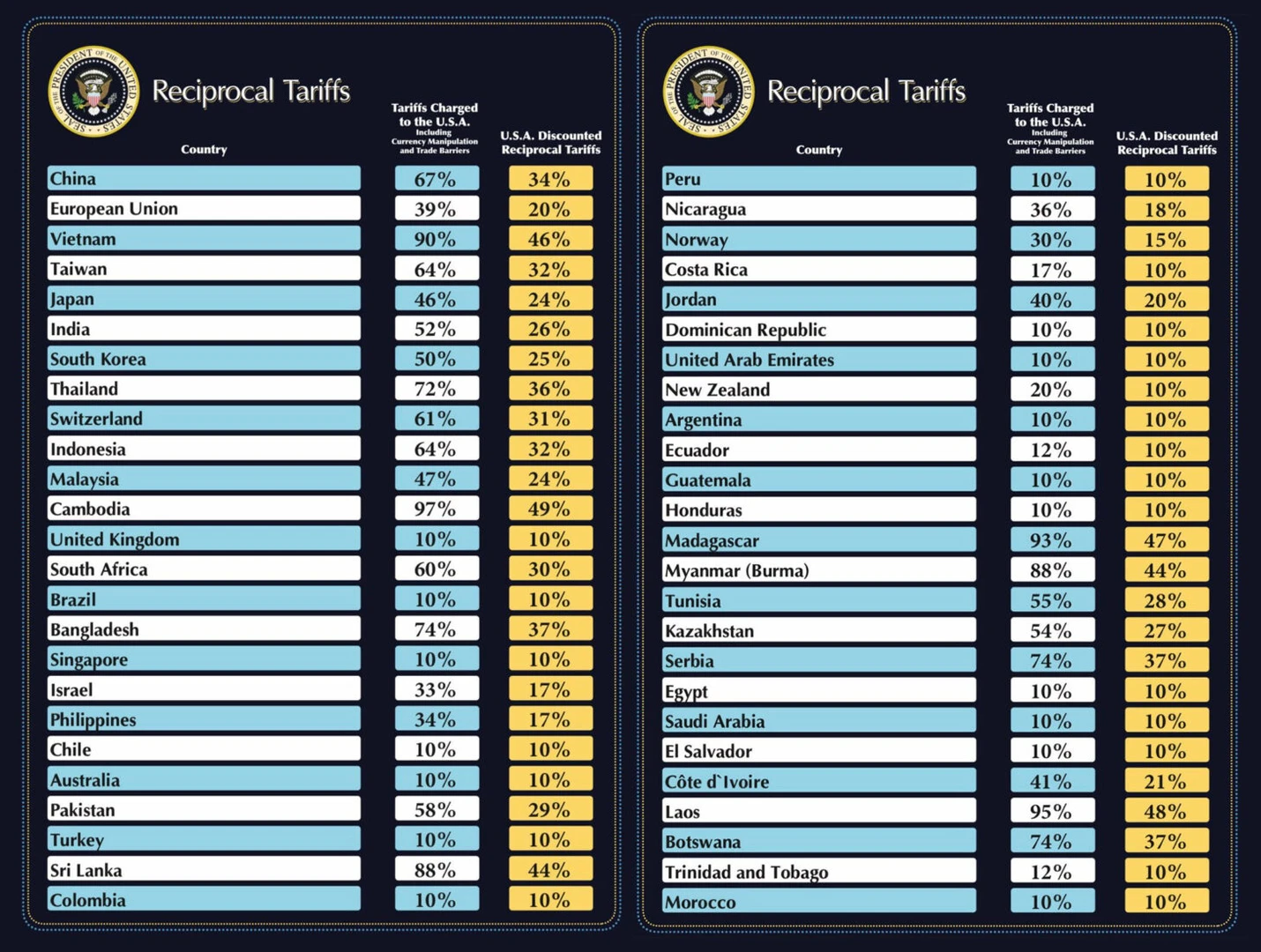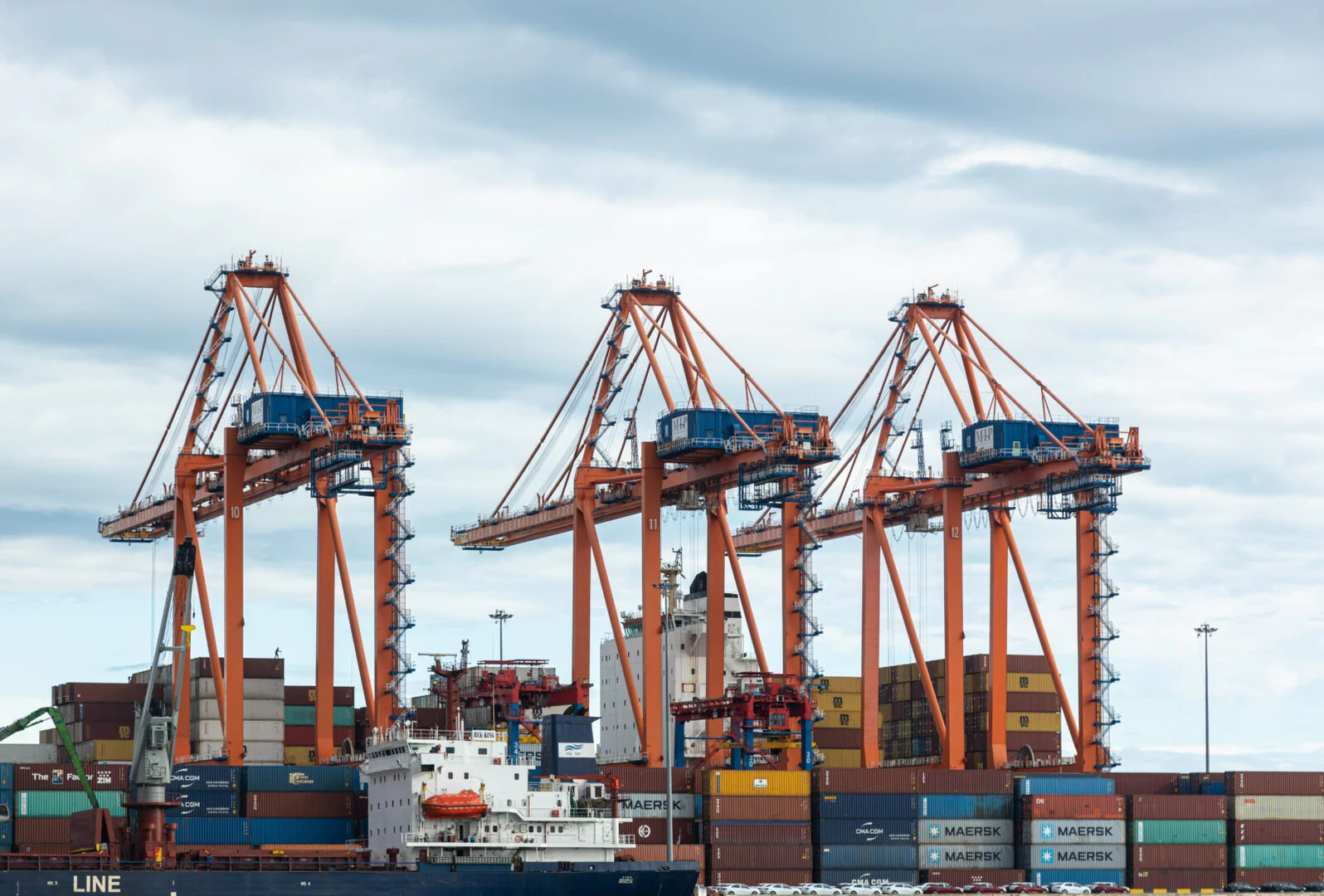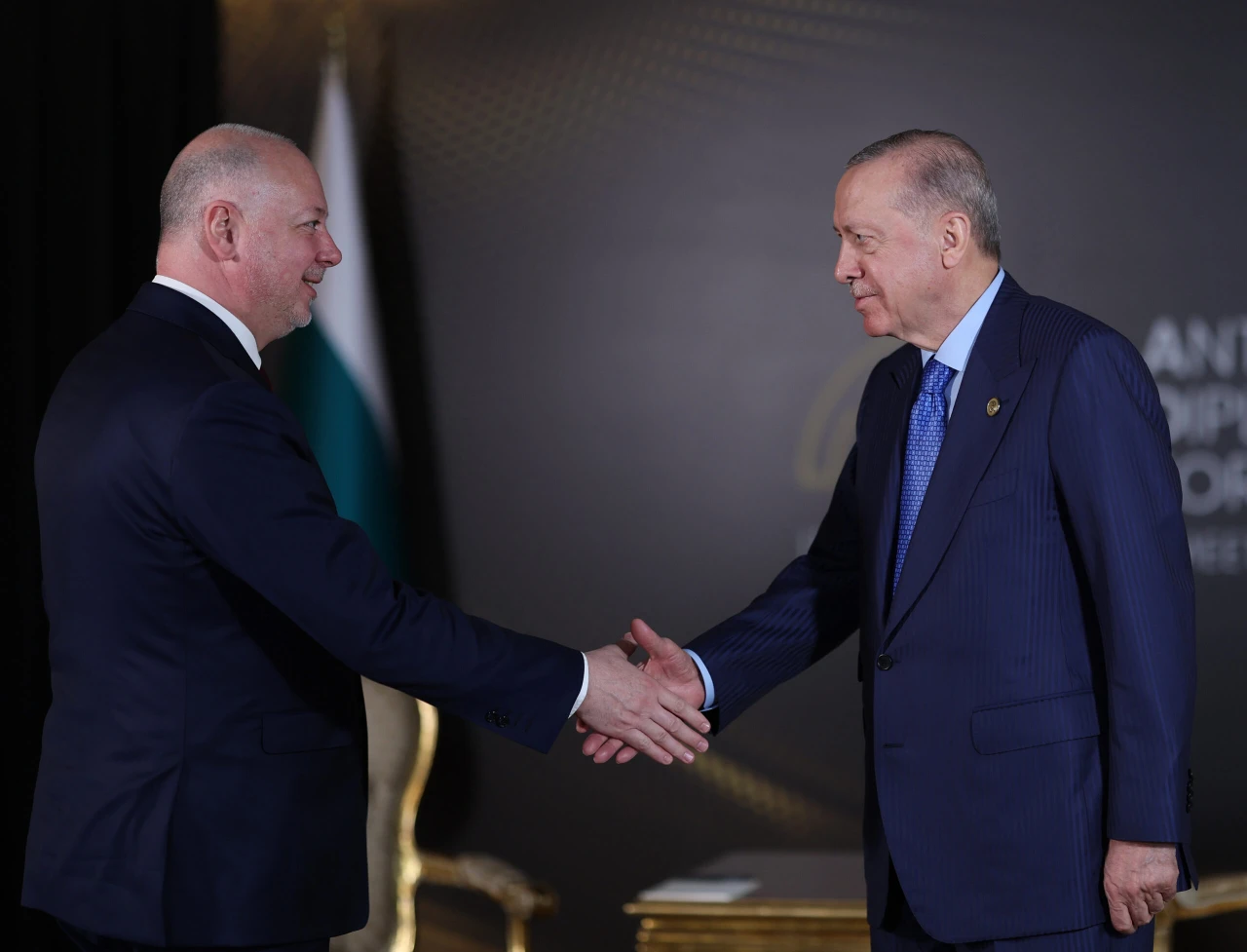‘Withouth panic, remaining on alert’: Türkiye eyes strategic gains amid Trump tariffs
 Trade Minister Omer Bolat delivers a speech at the Target Market US Summit organized by the Union of Chambers and Commodity Exchanges of Türkiye (TOBB) at TOBB Twin Towers, in Ankara, Türkiye, on Dec. 13, 2024. (AA Photo)
Trade Minister Omer Bolat delivers a speech at the Target Market US Summit organized by the Union of Chambers and Commodity Exchanges of Türkiye (TOBB) at TOBB Twin Towers, in Ankara, Türkiye, on Dec. 13, 2024. (AA Photo)
Türkiye’s Trade Minister, Omer Bolat, commented on Türkiye’s stance regarding the Trump tariffs unveiled on Apr. 2, emphasizing the country’s preparations to ensure stability in trade relations.
“Our first priority is to avoid damage. The second is to move forward with proactive steps,” Bolat stated, sharing the government’s approach to maintaining economic stability.
Speaking during a live interview with Turkish news channel TGRT Haber on Thursday, Minister Bolat detailed Türkiye’s roadmap to navigate the international trade environment in the wake of U.S. protectionist policies.
Bolat noted that the Trump administration had begun fulfilling its pre-election promises by imposing high tariffs on countries with which the U.S. had a significant trade deficit — including Mexico, China, and several European nations.
“Over the last two to two-and-a-half months, they have announced product- and sector-based tariffs. On April 2, they introduced a new round of global tariffs,” he said.
Despite these moves, Bolat highlighted that trade between Türkiye and the U.S. remains relatively balanced.
“The U.S. holds a slight advantage — about $2.4 billion — but our total bilateral trade volume stands at $35 billion. We also have reciprocal investments amounting to $26 billion. In tourism, the relationship is positive. Türkiye has been placed among the countries subject to the lowest tariff rates, unlike the 60 countries that faced higher duties,” he explained.

The Trump tariffs will affect Türkiye at a minimum rate of 10% due to the balanced trade relationship between the two countries. U.S. President Donald Trump paused the tariffs on Wednesday for 90 days for more than 75 countries seeking to negotiate trade disputes. However, countries previously facing tariffs above 10% will still be subject to the base 10% reciprocal tariff during this period.
‘Neither panic nor premature optimism’
Bolat said Turkish authorities had been on high alert since Trump assumed office and had established a dedicated task force in coordination with industry representatives.
“Our strategy is to be well-prepared. First, to protect our exports to the U.S. and other markets without disruption. Second, to ensure that Türkiye emerges from this process with minimal damage,” he said.
He also pointed out an opportunity: the U.S. market share vacated by Far Eastern countries — now subject to heavier tariffs — could be captured by Turkish exporters.

“We’re aiming to expand our market share not just in the U.S but also in the E.U., Asia, Africa, the Middle East, and our domestic market. We’re conducting negotiations and taking proactive measures in collaboration with the private sector to reduce competitive threats at home and abroad.”
Responding to a question about how Türkiye plans to navigate potential new trade opportunities in the U.S., Bolat emphasized caution and preparation.
“Conditions can change at any moment. Without panic, and remaining on alert, we are preparing ourselves. Public and private sectors must work together to safeguard the interests of our country and our citizens,” he concluded.



